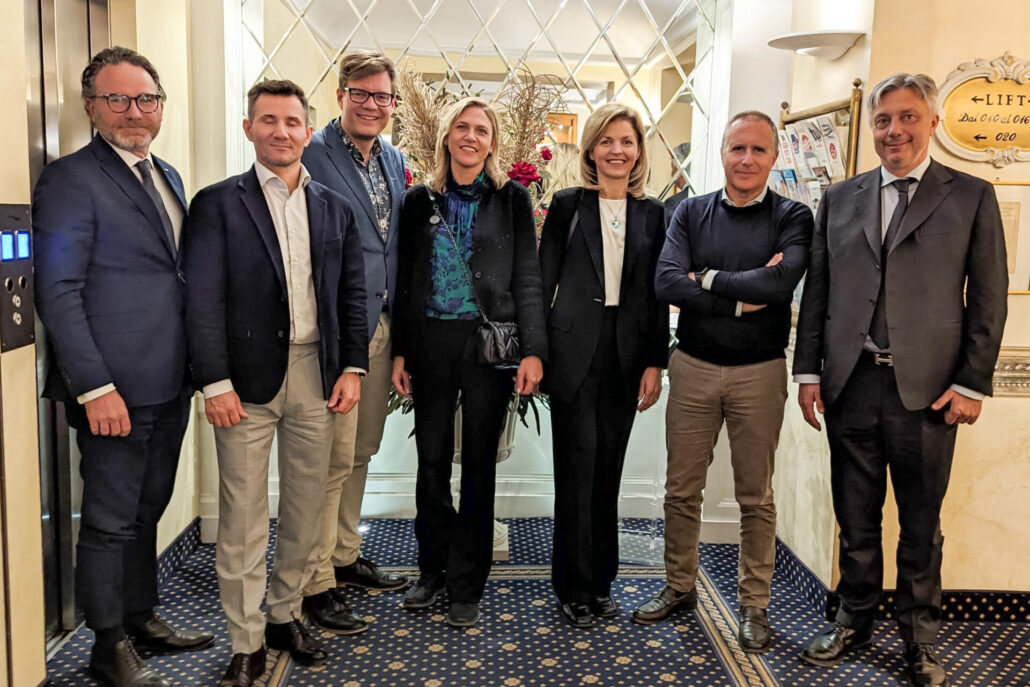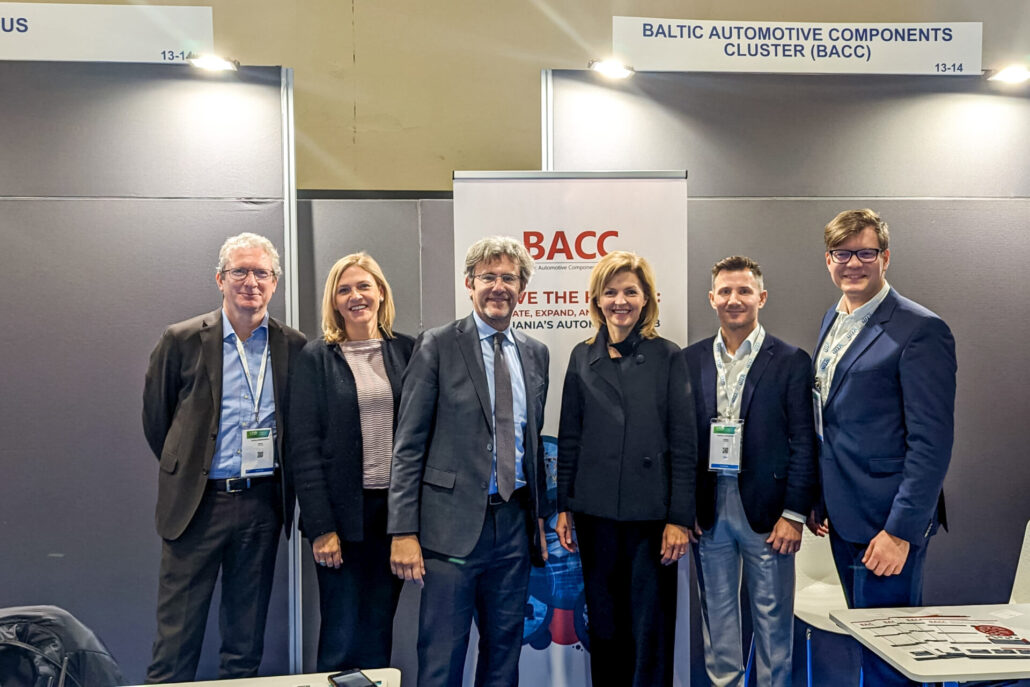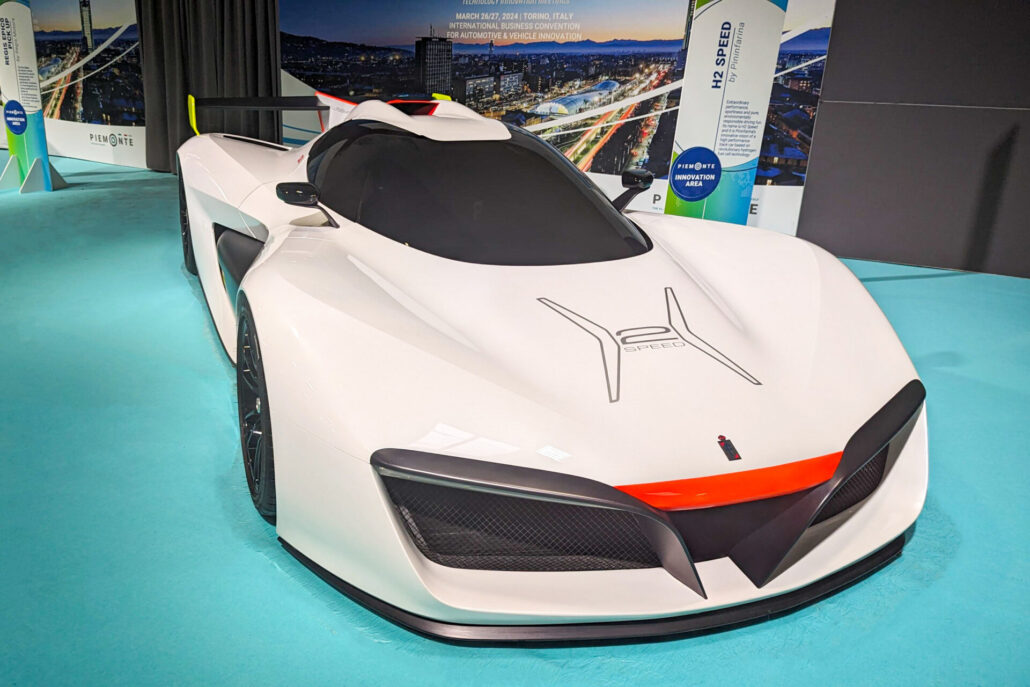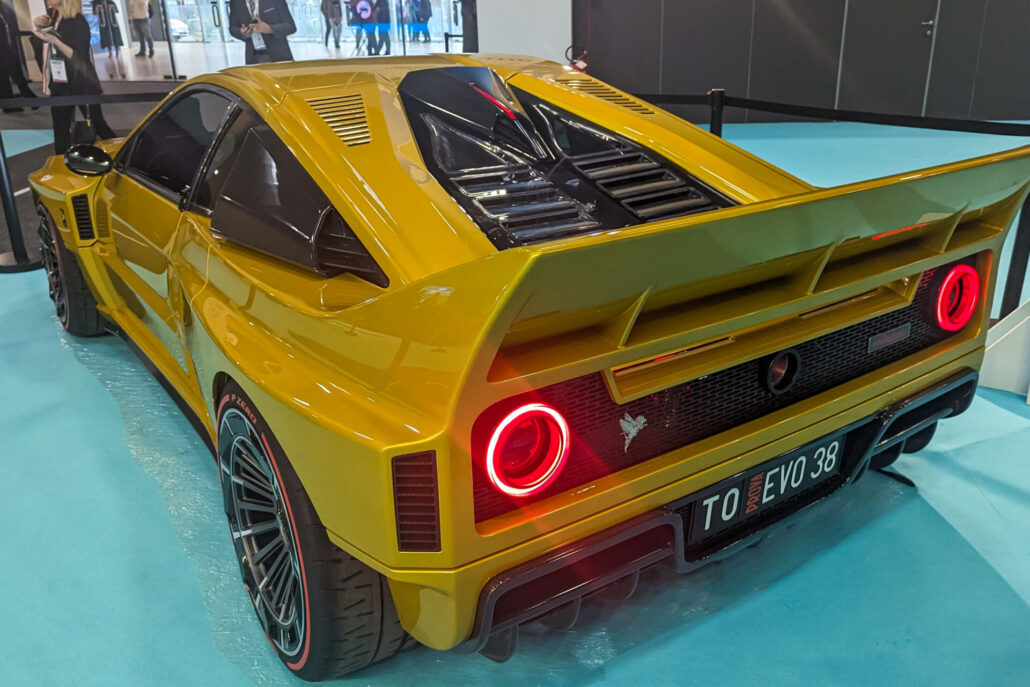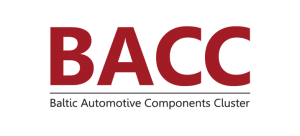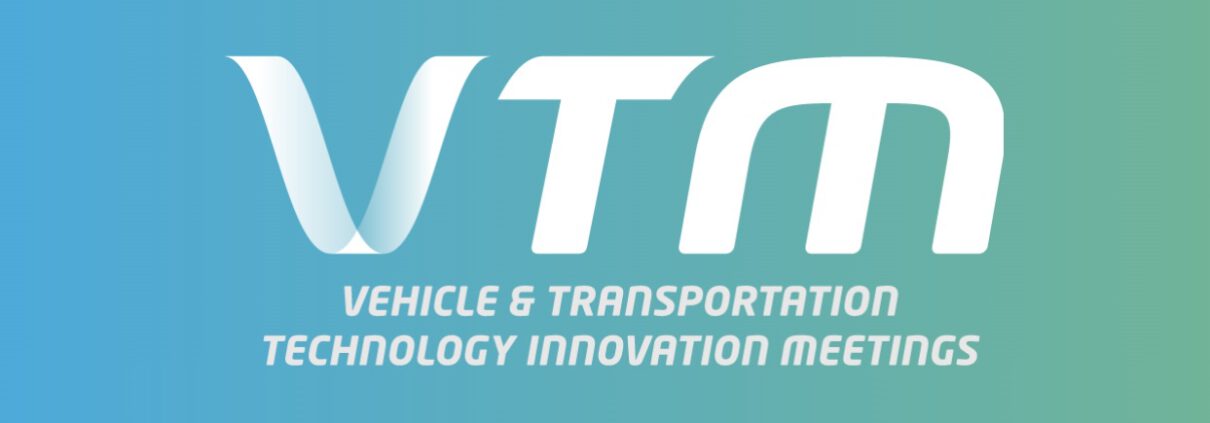Last week Giedrius Valuckas, the Chairman of the Board of BACC, participated at VTM, International Business Convention for Automotive and Vehicle Innovation in Turin, Italy.
VTM is a significant Event in the mobility technology sector, attracting vehicle manufacturers, suppliers, key players and decision-makers of this industry.
It’s also a hotspot for innovative technical entrepreneurs and solutions providers. This essential gathering showcases an extensive lineup of conference sessions, providing a platform for industry leaders to discuss and shape the future of mobility and emerging vehicle technologies.
Special THANKS to Dalia Kreiviene, the Ambassador of Embassy of Lithuania to Italy and Laura Šerėnienė, the Commercial Attaché, for the comprehensive support and business contacts.
Valuckas’ visit to Italy and meetings with giants of the Automotive sector such as Stellantis, Iveco, Valeo, Peugeot demonstrate a strategic approach to international collaboration. The unique competencies of BACC companies were presented in order to identify synergies for potential collaboration. Lithuanian Automotive companies are especially strong in productivity, innovative solutions and talents.
According to Valuckas, the automotive industry is undergoing a massive transformation, opening new windows of opportunity for diverse players to offer their innovative solutions. This shift not only broadens the possibilities for collaboration but also fosters unique synergies between our countries. It’s an exciting time for the industry, and we’re poised to play a significant role in shaping its future.
The transportation is currently transforming due to four key trends: sustainability, connectivity, artificial intelligence, and emerging mobility models. In the near future, electric and hybrid vehicles are set to become the top-selling products in the Automotive industry. These vehicles will not only be interconnected with each other and the surrounding infrastructure, but will also have the capability to operate autonomously. This shift will revolutionize the transportation of people and goods, significantly altering how vehicles are designed, developed, manufactured, and utilized. Additionally, new mobility models and associated services will grow, presenting exciting opportunities for the creation of innovative products and services.
